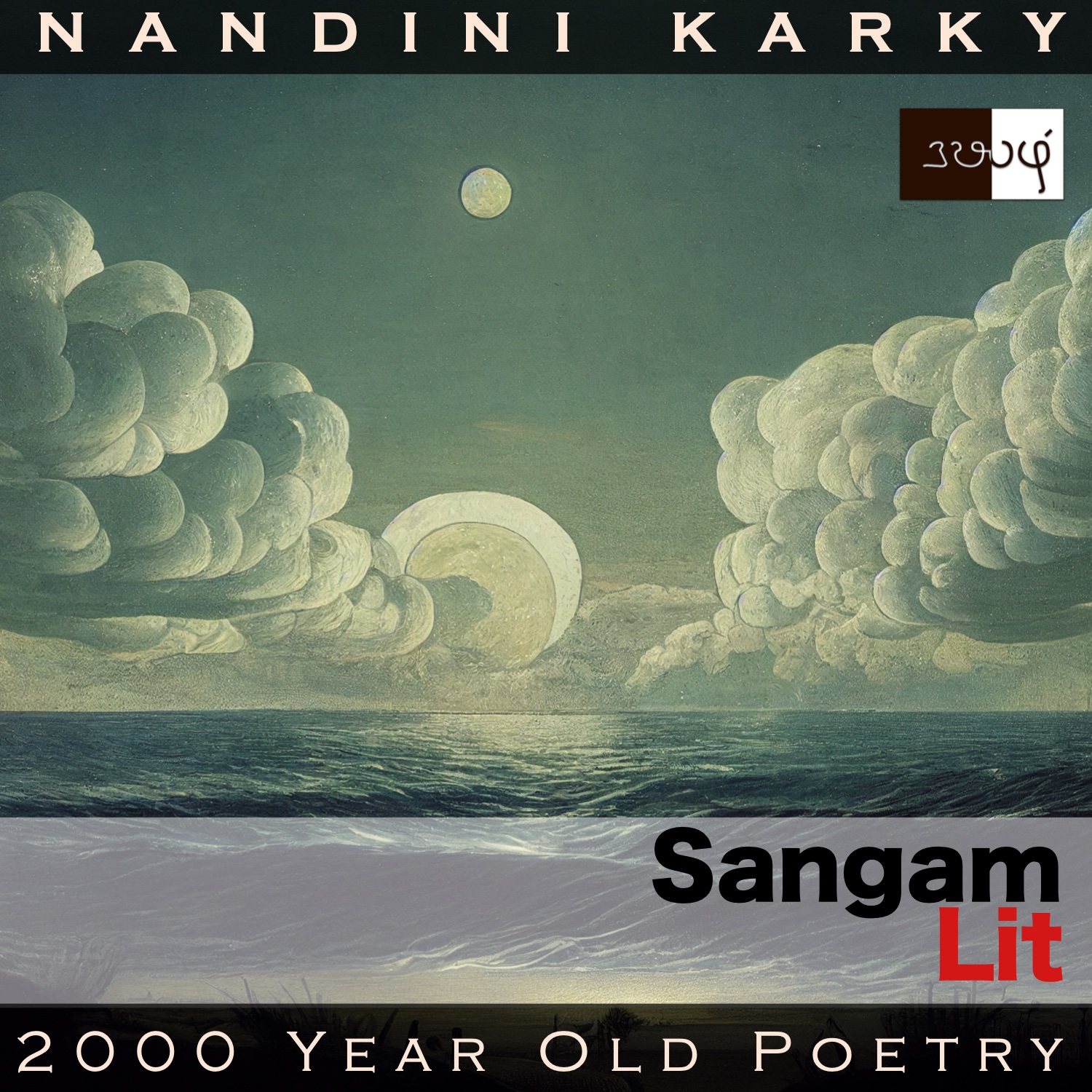Podcast: Play in new window | Download
Subscribe: Apple Podcasts | Spotify | Amazon Music | Android | iHeartRadio | TuneIn | RSS | More
In this episode, we listen to a tribute paid to a king, as portrayed in Sangam Literary work, Puranaanooru 55, penned about the Pandya King Ilavanthikaipalli Thunjiya Nanmaaran by the poet Madurai Maruthan Ilanaakanaar. Set in the category of ‘Paadan Thinai’ or ‘King’s praise’, the verse renders words of advice to the ruler.

ஓங்கு மலைப் பெரு வில் பாம்பு ஞாண் கொளீஇ,
ஒரு கணை கொண்டு மூஎயில் உடற்றி,
பெரு விறல் அமரர்க்கு வென்றி தந்த
கறை மிடற்று அண்ணல் காமர் சென்னிப்
பிறை நுதல் விளங்கும் ஒரு கண் போல,
வேந்து மேம்பட்ட பூந் தார் மாற!
கடுஞ் சினத்த கொல் களிறும்; கதழ் பரிய கலி மாவும்,
நெடுங் கொடிய நிமிர் தேரும், நெஞ்சு உடைய புகல் மறவரும், என
நான்குடன் மாண்டதுஆயினும், மாண்ட
அற நெறி முதற்றே, அரசின் கொற்றம்;
அதனால், ‘நமர்’ எனக் கோல் கோடாது,
‘பிறர்’ எனக் குணம் கொல்லாது,
ஞாயிற்று அன்ன வெந்திறல் ஆண்மையும்,
திங்கள் அன்ன தண் பெருஞ் சாயலும்,
வானத்து அன்ன வண்மையும், மூன்றும்,
உடையை ஆகி, இல்லோர் கையற,
நீ நீடு வாழிய நெடுந்தகை! தாழ் நீர்
வெண் தலைப் புணரி அலைக்கும் செந்தில்
நெடு வேள் நிலைஇய காமர் வியன் துறை,
கடு வளி தொகுப்ப ஈண்டிய
வடு ஆழ் எக்கர் மணலினும் பலவே!
A renowned Pandya King is being celebrated in this song. The poet’s words can be translated as follows:
“Mounting a soaring peak as a huge bow and tying a snake as the bowstring, with the aid of a single arrow, the blue-throated lord destroyed three forts, and granted victory to the powerful immortals. Akin to the single eye on his beautiful moon-like forehead, you reign supreme among the three monarchs, O Maran, adorned with flower garlands!
Furious, killer elephants; speedy, proud horses; chariots with tall flags; Brave soldiers, desirous of war – even though these four regiments bring honour to you, what precedes these in bringing victory to you is the rule of justice. And so, thinking some people are ‘your people’, do not bend your sceptre, and seeing some as ‘other people’, do not disregard their good!
Akin to the sun, rule with glowing vitality; akin to the moon, render cool compassion; akin to the clouds, shower generosity. Having all these three attributes, making ‘have-nots’ non existent in your land, may you live long, O great king, for days more than the sand grains heaped by roving winds in the desirable wide shore of ‘Senthil’, where the tall spear reigns supreme, as white-headed waves atop deep waters roar on.”
Time to delve into these words! The poet begins surprisingly by talking about supernatural entities such as the immortals, and a God, who seems to use a mountain as a bow and a snake as the bowstring to deliver victory unto the said immortals. But even more intriguing than these unbelievable feats is the mention of the third eye on his forehead, and the poet’s comparison of this Pandya king to that third eye, meaning that he’s superior to the other two rulers of that time – the Chera and Chozha kings. Current followers of religion would have no trouble in identifying this entity as God Siva. The number three also seems to have great significance among these ancients. Interesting is the way this Pandya king is celebrated as the superior third eye of the three eyes of this God, who himself is one of a Trinity, according to the Hindu religion.
Returning to the verse, the poet now lists the elephantry, cavalry, infantry and chariot regiments of the king’s army and says that though it’s commonly believed that this is what brings victory to a king, what brings lasting fame is his sense of justice and advises the king not to take sides favouring some as ‘our people’ and some as ‘others’. Then, the poet wishes the king to rule with power of the sun, the coolness of the moon and the generosity of rain clouds. He ends the verse with a favourite blessing of Tamil poets, saying that the king must have more days in his life than sand grains at the shore, the only difference being which shore, and in this case, it’s that near a holy place called ‘Senthil’, which scholars identify as contemporary Trichendur, the seat of another Tamil God, Murugan.
The thing that captured my attention was how the poet has the insight to request the king not to differentiate people as ‘us’ and ‘them’. The modern motto that all are equal in the eyes of the law seems to echo in these ancient words said to a monarch!




Share your thoughts...